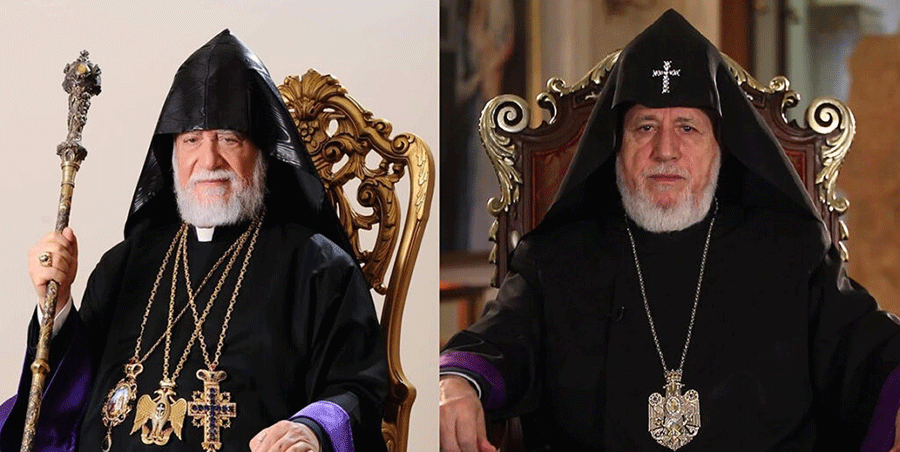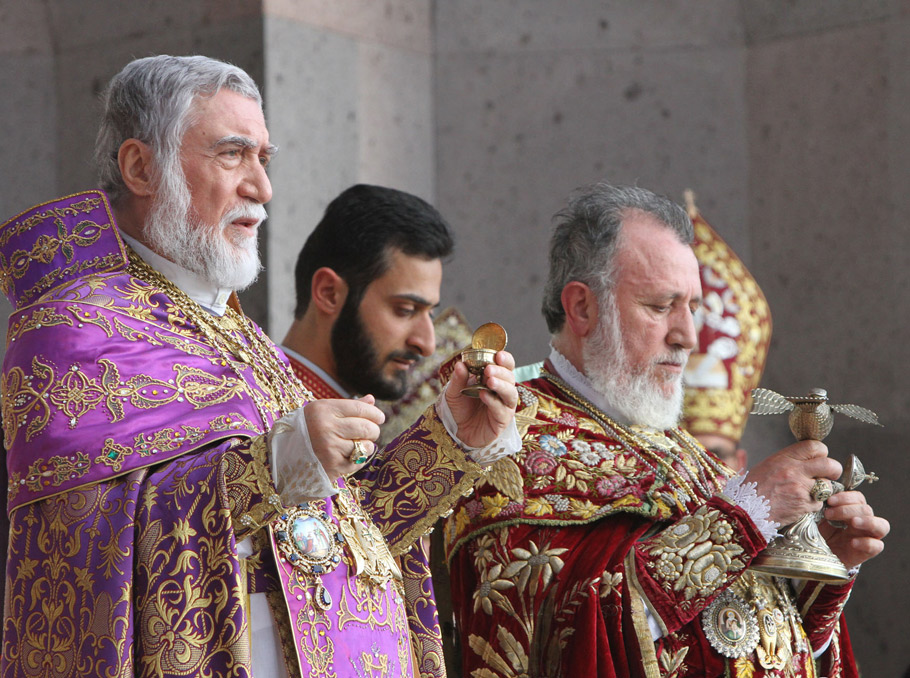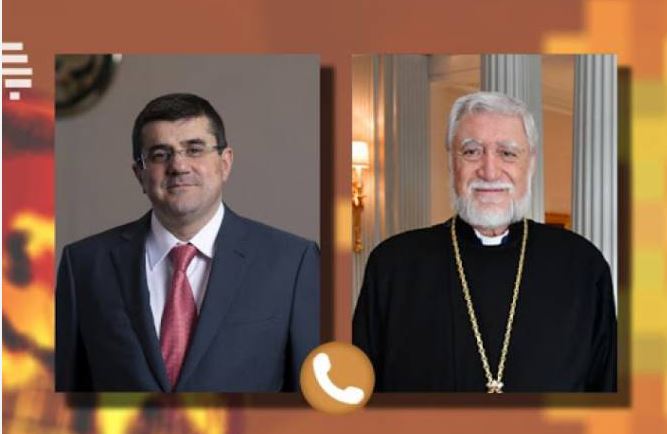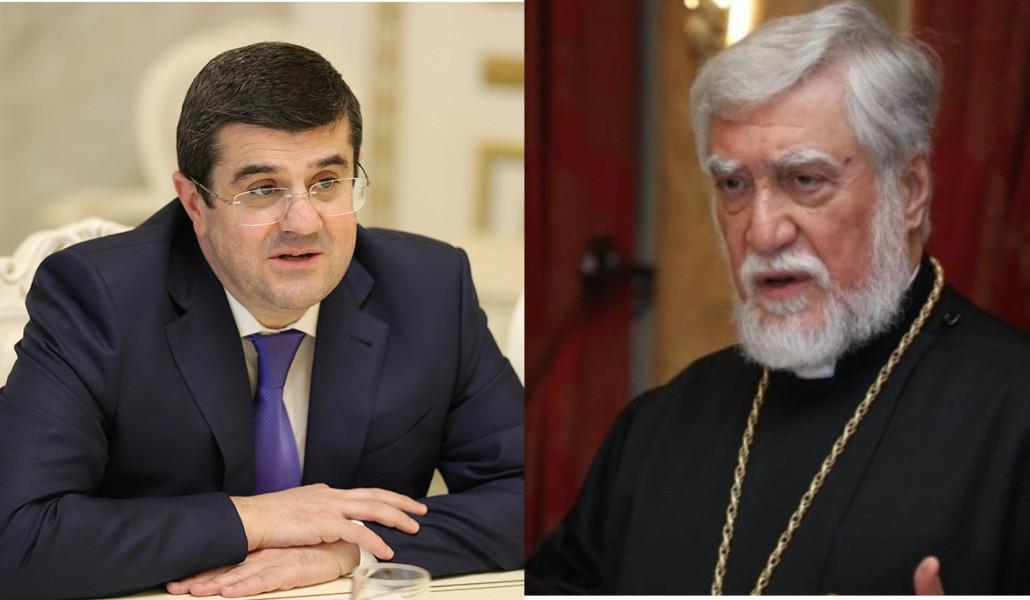by Stepan Piligian
Our relationship with the Armenian church is complicated. Criticism of performance and personalities runs rampant privately, but is strangely silent publicly. Most who are disappointed simply and quietly choose to leave. We should not confuse this with a lack of faith. Many who leave have faith but have chosen to express it through other vehicles. Many of the causes are difficult issues but must be addressed if the church is to remain relevant. Intermarriage, language and ethnic/spiritual balance are some of the topics we occasionally debate but have yet to confront. I would add knowledge and respect to the list of challenges. The former has become problematic, as functional illiteracy has evolved with succeeding generations. We have many laity in positions of influence who have limited knowledge of the history, canons and protocols of our church. I respect the commitment, but they can best be of service as informed individuals. Good quality immersion programs, camps and retreats are doing a credible job of reversing that trend within the emerging generations. The question is whether enough people are exposed for a critical mass going forward. Respect (or a lack of) has always been the major cause of conflict in our church. When egos and power become more important than compromise and collaboration, we all lose. How many talented people have you seen leave the church over conflicts?
Here in the Americas, we have settled into an institutional division that began decades ago. At face value, the lack of reconciliation is an affront to our Christian value of forgiveness, yet we seem to have convinced ourselves that we are entitled to a waiver with friendly clergy and lay relations between the Diocese and the Prelacy. We all welcome the advances in meaningful relations, particularly in the last 20 years, but a lack of knowledge and respect still finds its way onto our tables. Our church has four hierarchical seats in Constantinople, Jerusalem, the Great House of Cilicia in Antelias and the Mother See in Holy Etchmiadzin. Any practicing Armenian Apostolic Christian has a responsibility to understand and embrace this reality. Unfortunately, that is not the case. Our division here in America has created a byproduct of ignorance that threatens our future. Many of the adherents (lay) to the Etchmiadzin diocese in America have little knowledge of the Holy See of Cilicia and feel little responsibility to respect its presence in the life of the Armenian Church. The Holy See of Cilicia was once the seat of all Armenians and has existed independently since 1441, yet that has little bearing on current views.
Read also
The recent pontifical visit of His Holiness Aram I illustrates this point. We have let our administrative division (as our leaders call it) evolve into a lack of respect for one of the hierarchical sees of our church. There is no malice for the most part, just ignorance and ambivalence. Was Aram I invited by any diocesan church to conduct a simple hrashapar service to honor his presence? I applaud the presence of some diocesan clergy, but our expectations are too low. The reverse is also true. We must all remember that Holy Etchmiadzin is the Mother See. The term “All Armenians” should carry some value. Many in the Prelacy view the Catholicoi as competing, and therefore respecting both is not an option. The Prelacy faithful have a tendency to judge the personality of the current Vehapar and as a result pay less attention to the seat itself. Disagreeing with the policies or practices of a church leader is not an acceptable reason for ignoring the institution. We must be strong enough not to sacrifice knowledge and respect for the sake of short-term opinions. Criticism that is connected to expectations in the interest of the church is not only valid but essential to our sustainability. The absence of knowledge and respect is a threat to our future and tragic in that it is self-inflicted. Our divisions are artificial and should never be an impediment to knowledge and respect. We must strive to individually and collectively become informed people who maintain civil relationships in our communal life.
I was reminded this week of how low our expectations have become. While reading the weekly eastern diocesan newsletter, I noted an article about Catholicos Karekin II making another “non-pontifical” visit to the United States and meeting with the diocesan staff and Fund for Armenian Relief (FAR) team. I was deeply disappointed by the news of another visit by Catholicos Karekin II to America without a public itinerary. It has been 16 years since the last pontifical visit of the Vehapar to these shores, yet during that period there have been at least half a dozen visits of a private nature devoted to benefactors and fundraising for the Mother See. I understand that collecting funds is a high priority and that time is usually allocated to this mission. Catholicos Aram I raised funds for Antelias when he visited this past fall, and I am sure this will continue with the second part of his pontifical visit later this year. Raising money is not the issue. What I find unacceptable is that the leader of the church can come here and make no public appearances during which he can bless the faithful, meet the young people and listen to our concerns. It is a major responsibility to be with the faithful and build that relationship. Our people need the inspiration of their spiritual leaders.
Perhaps of even greater concern is the silence of the adherents in the diocese. Numerous selective visits and 16 years without a public visit are not a matter of concern? There was a time when the standard for a visiting Vehapar was always a pontifical visit, with fundraising a private secondary outcome. Beautiful high badarak, public rallies with our youth, formal gatherings to hear his message and local parish visits with hrashapar services were etched in our memory – no longer with the Mother See. The young people today do not know the Catholicos of All Armenians. Our local leadership apparently finds this acceptable. We are a church driven and at times paralyzed by protocol and formality. The visit of a Vehapar happens as a result of an invitation by the host diocese, but we all know that if the Vehapar wants to visit, the invitation will be forthcoming. Has the diocese extended an invitation to the Vehapar in the last 16 years? If not, has the diocese questioned the need during his numerous private trips? It is rather insulting for the common faithful of the parishes to be denied this opportunity unless you add some financial value to the Mother See. In this most recent visit, unless you are a substantial benefactor or in the leadership of FAR (which funds many programs in Armenia), you have no access. I will not question the integrity of those participating in the financial support of the Mother See, but as long as the faithful of this diocese are denied public visits, then we are all complicit.
We have lowered our expectations in response to this behavior, because we are taught that challenging authority is disrespectful. In the name of respect for the position, we fail to hold elected officials accountable. In the Armenian church, all lay and clergy leaders are elected by a ratio of lay/clergy prescribed in the bylaws. It is not only possible, but also our responsibility, to show respect while speaking out for the betterment of our church. Unfortunately, we are plagued by concerns of being unpopular or socially isolated if we address some of these problems. Challenging the Vehapar in the proper manner to fulfill his responsibility to the faithful is not disrespectful or counterproductive. It may take courage since most of our proceedings are either procedurally robotic or determined in smaller groups. I remember when the Vehapar came many years ago and the youth gathered in Central Park in New York. Those teenagers are now in their 30s and building families. What about today’s teenagers? Will they have that experience? How about the small parishes that need a spiritual boost from a special experience? I have been told that he is not comfortable in this role. Respectfully, we should have two expectations of our spiritual leaders. The first is to be visible and make a difference in our lives. The second is to use their authority to empower our diverse diaspora dioceses to address the challenges of our survival. If we have learned anything in the last few generations, it is that one size does not fit all in our church. Specifically, the diocesan primate, Bishop Parsamyan, needs the freedom to address the core issues that are unique to the American Armenian experience. The Vehapar is the only person in our structure who can empower that need. It is puzzling to me why this eludes us. Empowering our leaders and being visible will only enhance the credibility of Holy Etchmiadzin. Many Armenians feel aloof from the Mother See because of the lack of presence and relationship. We cannot succeed long term only with selective relationships.
This should not be construed as an attack on our leadership. Quite the contrary. It will hopefully be viewed as a proposal to increase the influence of the Mother See. Our faithful want to be led, and our leaders need followers. During the early decades of the diaspora, intercontinental travel was limited until Catholicos Vasken of blessed memory came to America.
This column began with a plea for respect for our hierarchical sees. We should not simply welcome but also insist on our spiritual leaders’ presence to fortify our faith. All Armenians should welcome Aram I here this fall. We should insist on inviting the Catholicos of All Armenians in a similar vein. For those who are focused on behavior and style, cast that aside and focus on our greater needs. Let’s hold each other accountable to build a stronger church.























































